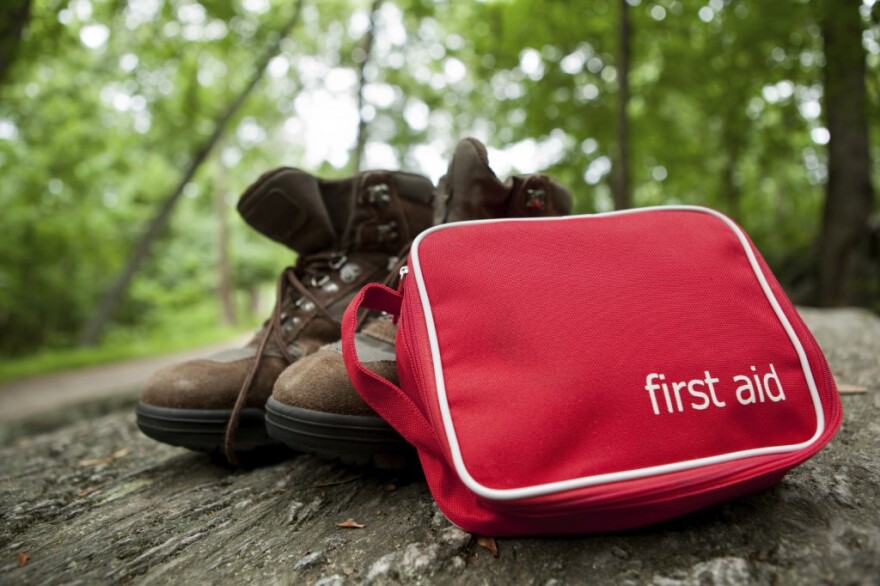Hunters and anglers take great care to ensure they have all the equipment, gear and appropriate licenses needed for their next outing because nobody likes reaching their destination only to realize they forgot something.
A good checklist can help eliminate those instances, and it’s always a good idea to include a well-stocked first aid kit on any such list.
“Being outside and participating in these sports raises the potential for injury,” said Bobby McKee, a conservation educator with the Kentucky Department of Fish and Wildlife Resources and part-time emergency medical technician based in Butler County. “We’re dealing with firearms and knives, fishing hooks, tree stands and all sorts of other potential hazards. Even crossing a creek can be hazardous.”
Having a first aid kit and first aid training provides peace of mind because it’s impossible to predict when an injury might occur. Kits are readily available for sale online and at grocery stores, pharmacies and sporting goods retailers. Some may choose to modify those store-bought kits or assemble one of their own in a freezer bag, fanny pack or small backpack to suit their situation and carrying capacity.
McKee tailors his first aid kit based on the duration and type of activity.
“If I’m going out west and I’m going to be hunting in the Rocky Mountains for a week, my first aid kit will have more in it,” he said. “If I’m going to be hunting at Land Between the Lakes or a Wildlife Management Area close to home, it won’t be as extensive.”
McKee recommends some basic items for a first aid kit, such as:
● Adhesive bandages in assorted sizes
● Sterile dressings in assorted sizes
● First aid tape
● Triangular sling/bandage
● Sterile gloves
● Triple antibiotic ointment
● Hydrocortisone cream
● Alcohol cleansing pads
● Antiseptic cleansing wipes
● Instant cold compress
● Prescription medication
● Prescribed medical supplies
● Aspirin tablets
● EMT shears
● Emergency blanket
Many first aid kits include an instruction booklet, but it’s also advisable to take a course that teaches first aid and cardiopulmonary resuscitation (CPR). The American Red Cross and American Heart Association offer these courses online and in classroom settings across the state. They cover first aid emergencies such as burns, cuts, head, neck and back injuries, cold and heat emergencies, and teach how to respond to breathing and cardiac emergencies. More information is available online at redcross.org and heart.org or by contacting your local American Red Cross or American Heart Association office.
“Everybody needs a first aid class,” McKee said. “Techniques change over the years. It’s always good to get the updated information and start out with that as preparation for your hunting and fishing seasons.”
Good communication can be as important as having a well-apportioned first aid kit and knowing how to use what’s in it.
Tell others where you will be and when you expect to return. McKee suggests writing that information on something like a dry-erase board at home.
Carry your cell phone or other communications device.
“If you’re hunting with a child, they know how to use your cell phone better than you do,” McKee said. “You need to make sure that child knows where you’re hunting - write down the address and stick it in their pocket - if they need to call 9-1-1 because you’ve been injured.”
A whistle can be an effective tool that helps rescuers pinpoint your location.
“I carry a little plastic referee’s whistle every time I go hunting,” McKee said. “If I’m unable to yell, it would alert a search party from a long distance.”
With the fall fishing and hunting seasons in full swing, consider adding first aid training and first aid kits to your to-do list before leaving for your next adventure.
(story provided by Kentucky Department of Fish & Wildlife)





